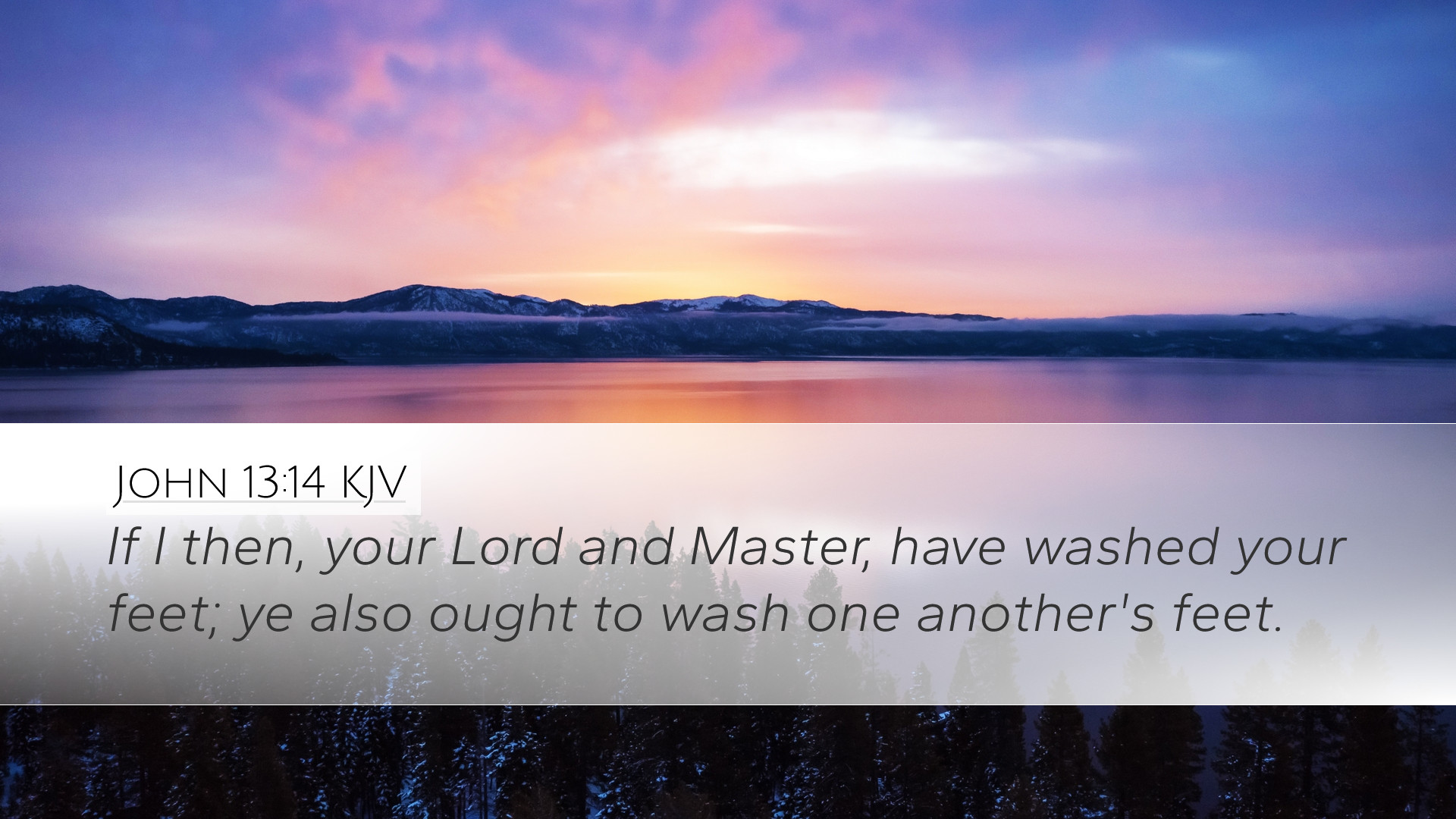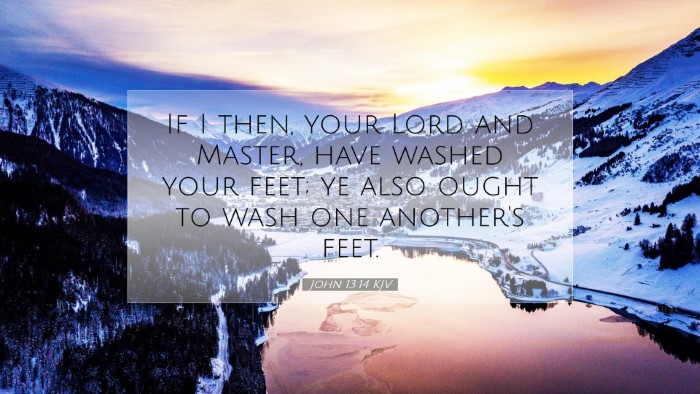Commentary on John 13:14
Verse: John 13:14 - "If I then, your Lord and Teacher, have washed your feet, you also ought to wash one another's feet."
Introduction
The act of foot washing, as described in John 13:14, encapsulates a profound lesson in humility, service, and the essence of Christian leadership. This verse is set against the backdrop of the Passover meal, where Jesus demonstrates the kind of selfless love and servant leadership He expects from His followers.
Contextual Analysis
This passage occurs during the Last Supper, a poignant moment where Jesus shares His final teachings with the disciples. It is vital for understanding the gravity of His actions and words. The foot washing not only signifies His role as a servant but also prefigures His sacrificial death, a central theme of the Gospel of John.
Interpretation from Public Domain Commentaries
Matthew Henry's Commentary
Matthew Henry emphasizes that this act of washing feet was a symbol of humility. Jesus, being their master, took on the role of a servant, which serves as a stark illustration of true leadership in the kingdom of God. Henry notes that, “The law of the kingdom is, to serve one another.” The implication here is that genuine authority is expressed through service rather than dominance.
Albert Barnes' Notes
Albert Barnes elaborates further by pointing out that Jesus' example was intended to instruct His disciples in the virtues of humility and self-sacrifice. He writes, “The lesson is taught that, as He has served them, they should serve one another.” Barnes highlights the perpetual relevance of this teaching — instructing believers to embody this servanthood not only in physical acts but also in their spiritual lives through love and support for one another.
Adam Clarke's Commentary
Adam Clarke notes that foot washing was a common practice among the Jews at that time, often performed by the lowest servant of the household. Clarke emphasizes the shocking nature of Jesus' act as it subverted cultural norms, showcasing that Christ's kingdom operates under different principles — principles of grace, mercy, and humility. He expounds on the idea that, “By this act, He teaches us that none are too high to serve the lowly.”
Theological Significance
The theological significance of John 13:14 is vast. It speaks to the heart of Christian ethics and discipleship. This verse encapsulates the radical nature of Jesus’ teaching: that in the Kingdom of God, leadership is reframed in terms of servanthood. To be a follower of Christ means to emulate His example. Paul reiterates this in Philippians 2:5, urging believers to have the same mind as Christ, who, though equal with God, took on the form of a servant.
Applications for Life and Ministry
The call to wash one another's feet is a radical invitation for believers to live out this principle in their communities and churches. Here are some practical applications:
- Embrace Humility: Leaders are called to serve those they lead, reflecting Christ’s humility in every action.
- Create a Culture of Service: Churches should foster environments where serving one another is a priority, equipping members to engage in acts of love and service.
- Model Christ's Example: Pastors and church leaders should actively participate in serving, demonstrating that no task is beneath them.
- Encourage Mutual Support: Believers are called to bear one another's burdens and encourage one another through acts of kindness and service.
Conclusion
John 13:14 serves as a clarion call for believers to manifest Christ's love through practical acts of service to one another. As learned from the commentaries of Henry, Barnes, and Clarke, this verse transcends its historical context and bears significant implications for Christian life and ministry today. To embody this teaching is to live out the truth of the Gospel, marking the true disciples of Christ as those who serve others with love and humility.


